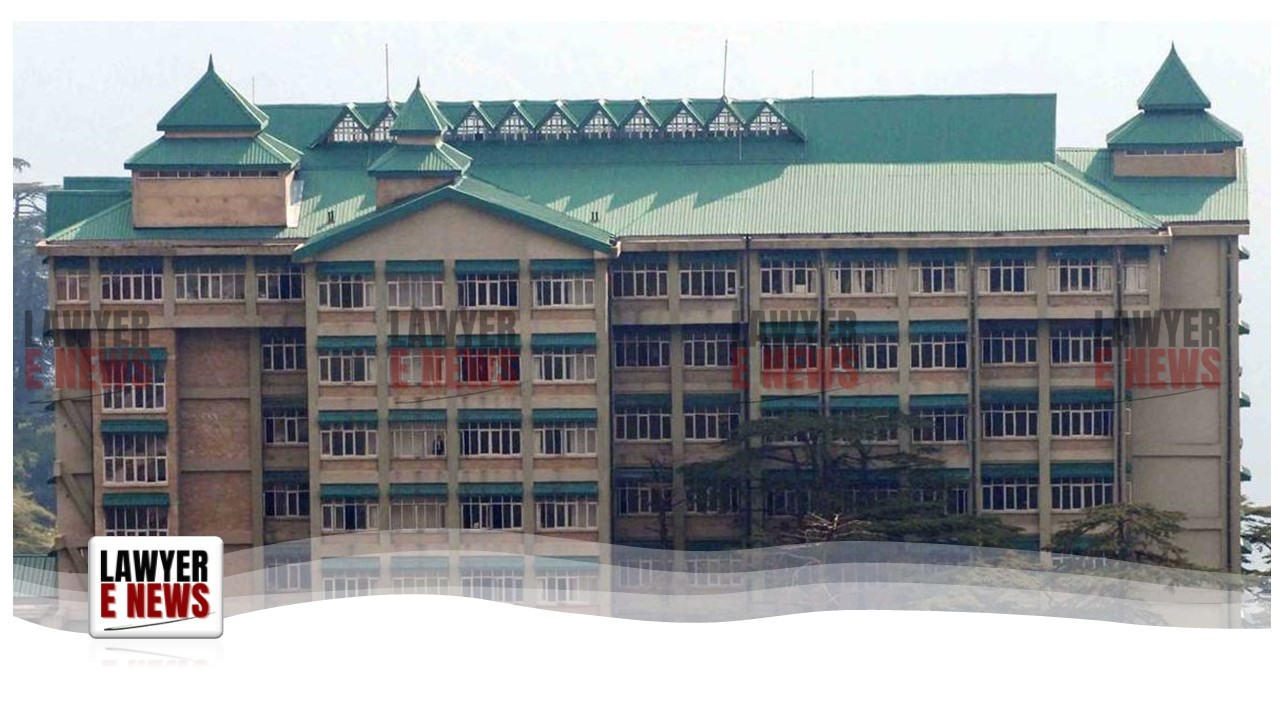-
by Admin
15 February 2026 2:16 AM



The Himachal Pradesh High Court quashed an FIR lodged against the in-laws of a woman for dowry harassment and physical abuse, finding that the allegations lacked specificity and precision. The judgment, delivered by Justice Rakesh Kainthla on September 4, 2024, highlighted that vague and general allegations without specific instances of harassment were insufficient to attract the provisions of Section 498-A of the Indian Penal Code (IPC). The petitioners had sought the quashing of FIR No. 8 of 2022 registered at Women Police Station, Chamba, citing misuse of legal provisions and an absence of clear evidence.
The complainant, married to Aditya since 2013, alleged that her husband abused her under the influence of alcohol and sought financial help from her and her family. The FIR stated that the woman's in-laws, Jagmohan and Jeevan, mentally and physically harassed her and justified her husband’s behavior by dismissing it as normal for men to consume alcohol. However, the allegations against the in-laws were largely general, without specifying any particular incident or the nature of harassment, leading to the filing of the petition for quashing the FIR.
The complainant's grievances extended to claims of being coerced into taking personal loans to assist her husband’s failing restaurant business and having been abused in their rented accommodation in Chamba.
Vague Allegations: The court noted that while allegations of dowry harassment and cruelty were made, the details provided were insufficient. The FIR only contained general statements that the in-laws supported the husband’s drinking and scolded the complainant. Justice Kainthla remarked, "General statements without specific instances of harassment, mental or physical, cannot form the basis for invoking Section 498-A IPC."
Lack of Specificity: The court emphasized that the FIR did not mention specific incidents or precise roles played by the petitioners in the alleged cruelty. It cited Supreme Court judgments that stress the need for clear allegations when invoking criminal provisions, particularly in matrimonial disputes. "The FIR should clearly delineate the actions of each accused to justify a criminal proceeding," the court stated, referencing past rulings in Neelu Chopra v. Bharti and Achin Gupta v. State of Haryana.
General Allegations Against In-laws: Justice Kainthla referenced the Supreme Court’s observation in Preeti Gupta v. State of Jharkhand that complaints under Section 498-A often involve blanket allegations against the husband’s family. "In cases where the allegations are sweeping and vague, the courts must exercise caution before continuing with the prosecution," the judgment reiterated.
The court underscored the importance of taking the contents of the FIR at face value to determine if a prima facie case is made out. In this instance, the court found that the allegations did not meet the necessary threshold for continuing criminal proceedings. Quoting from the Supreme Court’s ruling in Achin Gupta, Justice Kainthla emphasized that "continuing with prosecution on such vague charges would amount to an abuse of the judicial process."
The court also rejected the respondent's request to register a second FIR based on the earlier complaint made to the Superintendent of Police, citing the precedent in T.T. Antony v. State of Kerala, which prohibits multiple FIRs on the same matter.
By quashing the FIR, the Himachal Pradesh High Court reinforced the principle that matrimonial disputes must be approached with sensitivity and that criminal provisions like Section 498-A IPC should not be invoked on the basis of vague, unsubstantiated allegations. This judgment serves as a reminder of the judiciary’s role in preventing the misuse of legal provisions, particularly in familial disputes. The case highlights the court's adherence to legal precedents that protect individuals from being drawn into prolonged legal battles without clear and convincing evidence.
Jagmohan and another v. State of Himachal Pradesh and another
Date of Decision: September 4, 2024
